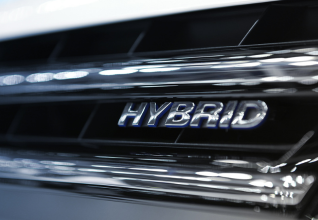Are hybrid cars truly cheaper to run? This is a common question on the minds of many potential car owners considering a switch to these eco-friendlier alternatives. Before we dive into the cost aspects, let’s take a moment to understand what a hybrid car is and how it operates.
Understanding Hybrid Cars
How Hybrid Cars Work
Have you wondered how do hybrid cars work? Hybrid cars combine a traditional internal combustion engine with an electric motor. The car intelligently switches between these two power sources, optimising energy use and enhancing fuel efficiency. The electric motor is utilised at lower speeds, while the petrol engine kicks in at higher speeds, balancing power and efficiency.
Types of Hybrid Cars
There are three main types of hybrid cars: parallel hybrids, series hybrids, and plug-in hybrids. Their differences lie in their mechanism of how the two power sources interact and how the electric motor is charged.
The Cost Aspect of Hybrid Cars
Initial Purchase Price
Initially, hybrid cars may seem more expensive than their conventional counterparts. The advanced technology, battery pack, and dual-engine system contribute to the higher purchase price. However, this is just one part of the overall economic equation.
Fuel Efficiency and Running Costs
The actual financial benefit of hybrid cars comes into play when considering fuel costs. Hybrid cars are known for their excellent fuel efficiency, especially in city driving conditions where frequent stop-start driving allows the electric motor to shine. Over time, the savings on fuel can be substantial enough to offset the higher initial cost.
Insurance and Maintenance Costs
Insurance premiums for hybrid vehicles can sometimes be higher than for standard cars, but this largely depends on your insurance provider. Maintenance costs, however, can be lower as the electric motor experiences less wear and tear than a traditional engine.
Benefits of Owning a Hybrid Car
Environmentally Friendly
Hybrid cars produce fewer emissions than conventional vehicles, making them a greener choice. Plus, the electric motor’s efficiency reduces fossil fuel consumption.
Government Incentives
Many governments offer incentives to promote hybrid and electric vehicles, such as tax credits or exemptions, making hybrid cars a financially attractive choice.
Drawbacks of Owning a Hybrid Car
Battery Replacement and Disposal
Hybrid car batteries have a lifespan and will eventually need to be replaced, which can be a significant cost. Additionally, the disposal of old batteries poses environmental concerns.
Final Thoughts
While hybrid cars might be more expensive upfront, their long-term running costs can be cheaper. Your savings will depend on several factors, including driving habits, fuel prices, and government incentives. By making an informed decision, a hybrid car is not only a greener choice but a financially smart one.
FAQs
What is a hybrid car?
A hybrid car is a vehicle that utilises both an internal combustion engine and an electric motor for propulsion.
Are hybrid cars more expensive to buy?
Yes, hybrid cars are generally more expensive than conventional cars due to their complex dual-engine systems and battery packs.
Are the running costs of a hybrid car cheaper?
Yes, hybrid cars have lower running costs due to their superior fuel efficiency and lower maintenance costs.
What are the disadvantages of hybrid cars?
The main drawbacks include:
- The higher initial purchase price.
- The eventual need for battery replacement.
- Potentially higher insurance costs.
Are hybrid cars good for the environment?
Yes, hybrid cars emit fewer greenhouse gases than conventional vehicles, making them more environmentally friendly.


